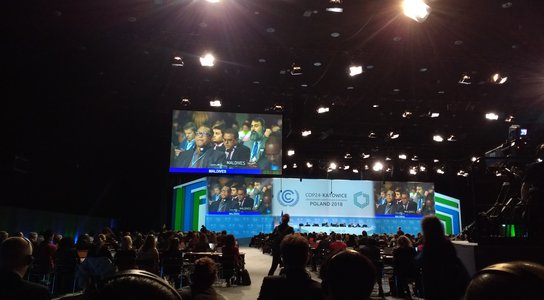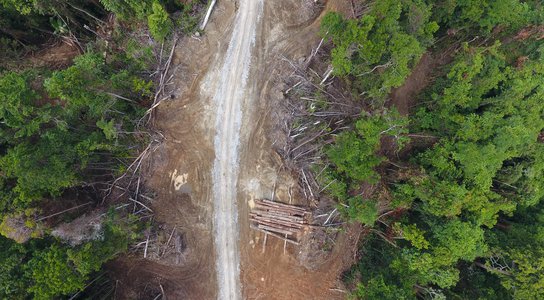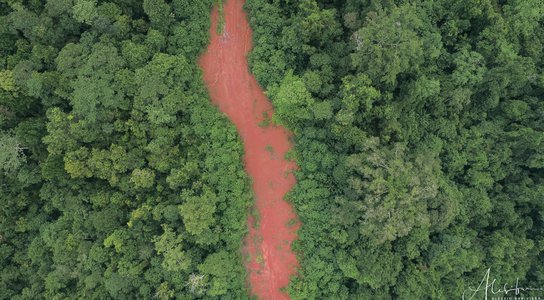With the Chinese lunar New Year just around the corner, it’s the perfect time to share what the China programme at Global Witness will be working on during the year of the pig.
The need for a meaningful global ecological civilisation
Climate breakdown is the greatest challenge of our times. My Global Witness colleagues returned from the United Nations Climate Change Conference in Poland at the end of 2018 echoing scientific warnings of worldwide mass forced migration, escalating droughts, floods and food insecurity that could lead to mass starvation in some parts of the world.
Domestically, China has shown leadership in setting out and beginning to implement a raft of ambitious and varied policies reflecting the commitment towards building an ‘ecological civilisation’ whereby environmental and economic considerations are held as equal. In the coming year we’ll be researching the extent to which these ambitions towards environmental protection and sustainable development can be widened outside China’s borders to the countries it invests in and imports from, and whether they can be protected in the face of China’s economic slowdown and trade tensions with the US.
China will continue to be an important target for our work on the illegal timber trade. Last year Global Witness showed how 50% of China’s imports of all tropical logs are at risk of being illegal, and come from Papua New Guinea and the Solomon Islands alone. This timber poses legal and commercial risks to Chinese companies as well as damaging some of the world’s most climate-critical forests.
In 2019, we’ll continue to work with concerned industry and policy makers in China to advise on what they can do to reduce those risks, so that ultimately illegal timber is excluded from this key market - currently the only major one without a law banning illegal timber imports.
We will also be asking questions of China as part of our broader work to hold the companies and governments who aspire to be global leaders in the fight again climate breakdown to practise what they preach (see for example here and here). Building on recent early warnings from academics and commentators, we will be examining how China’s domestic progress towards a lower carbon future can stand up to scrutiny when its vast Belt and Road overseas investments are taken into account, notably in the coal-powered energy sector.
Responsible supply chains of natural resources
Our second broad area of focus will be on supply chains of natural resources coming into China, reflecting commitments at the highest level of the United Nations as part of the UN Guiding Principles on Business and Human Rights and the Sustainable Development Goals (goal 12 endorses sustainable consumption and production).
As part of Global Witness’s international programme pushing companies to take responsibility for and mitigate environmental and human rights violations linked to their use of and trades in minerals, metals, oil and gas, our research has shown important links between Chinese trade and instability in countries including Afghanistan, Democratic Republic of Congo and Myanmar.
China has made positive first steps towards improving the status quo with government-affiliated industry bodies developing good practice guidelines and supporting company efforts to change trading behaviours. Individual companies have also been responding to requirements by overseas clients. However, there’s a long way to go.
In April we’ll be in Paris at the OECD Forum on responsible mineral supply chains sharing new research on how well Chinese companies at key points in supply chains of minerals, long-associated with conflict, corruption and abuses, are performing necessary checks.
Within China we’ll speak to policy makers, industry, scholars and civil society organisations about what more can be done to ensure Chinese companies’ supply chains aren’t associated with human rights abuses including the financing of brutal armed groups, child labour and corruption.
Positive developments by metal exchanges provide new opportunities for reform. The Hong Kong-owned London Metals Exchange began work on responsible sourcing for its brands last year. Chinese companies may take note.
As we start the year, the challenges seem enormous and long-standing. However, working alongside allies in China and overseas we remain hopeful that change is possible and that China can step up to meet the expectations on its policies and businesses so that its vast global trade and investments can bring greater benefits than harm.
Lizzie Parsons is China Programme Leader at Global Witness. She can be contacted by email ([email protected]), twitter (@gw_china) and wechat (lizzieparsons).


